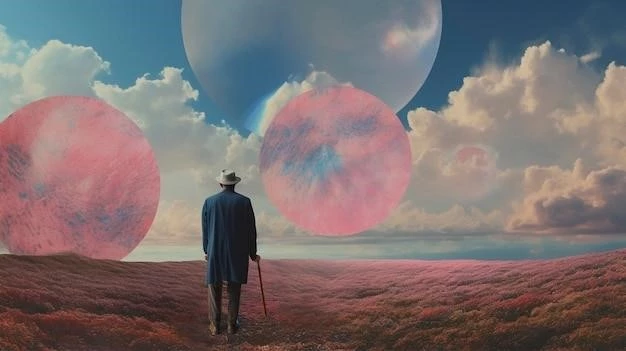Magic as a Metaphor: Exploring Themes of Perception and Reality
Magic, in its myriad forms across cultures and mythologies, transcends mere entertainment. It serves as a powerful metaphor, offering profound insights into the intricate interplay between perception and reality. This essay delves into the ways magic functions as a metaphorical lens, illuminating fundamental aspects of human experience, particularly the subjective nature of truth and the power of belief.
The Illusion of Control and the Limits of Reality
A central theme in magical narratives revolves around the illusion of control. Characters, often endowed with extraordinary powers, strive to manipulate their environment, bending the laws of nature to their will. This desire for mastery mirrors the human yearning for agency in a world perceived as chaotic and unpredictable. Magic, in this context, becomes a symbol of the human aspiration to transcend limitations and exert control over the external world. However, the inherent ambiguity of magic also underscores the limits of human control. The unpredictable nature of spells, the potential for unintended consequences, and the constant threat of backlash from magical forces serve as potent reminders of the inherent limitations of human ambition and the capricious nature of reality.
The Subjectivity of Truth and the Power of Belief
Magic often operates within a framework of subjective truth, where the power of belief plays a pivotal role in shaping reality. This concept is exemplified in numerous magical traditions, where the effectiveness of spells depends on the practitioner’s conviction and the intensity of their desire. In such narratives, magic becomes a potent metaphor for the power of human belief, suggesting that reality is not fixed but rather malleable, susceptible to the influence of our perceptions and convictions. The belief in the efficacy of magical rituals and the ability to manipulate the unseen forces of the universe directly impacts the outcome of magical endeavors, highlighting the profound influence of subjective belief on the perceived nature of reality.

The Role of Ritual and Symbolism in Shaping Perception
Magical rituals and practices often involve intricate symbolism and elaborate performance, serving as powerful tools for manipulating perception and shaping reality. These rituals, ranging from incantations and spell casting to the creation of magical artifacts, are not merely arbitrary actions but rather deliberate attempts to evoke specific mental states and harness the power of belief. The symbolic nature of magical rituals underscores the importance of ritualistic behavior in human life, suggesting that ritual can serve as a means of imbuing ordinary actions with extraordinary significance, thereby shaping our perception of the world and our place within it.
Magic as a Reflection of Human Desire and Fear
The themes explored in magical narratives are often deeply rooted in human psychology, reflecting our deepest desires and fears. Magic, in its various manifestations, serves as a powerful medium for exploring the human condition, from the yearning for power and immortality to the fear of the unknown and the anxieties surrounding mortality. The allure of magic stems from its ability to offer a glimpse into a world where limitations are transcended, desires are fulfilled, and fears are overcome. By engaging with these themes, magical narratives provide a potent commentary on the human condition, illuminating the complexities of our aspirations, anxieties, and the intricate interplay between our inner world and the external reality we inhabit.

Conclusion: Magic as a Lens for Understanding Reality
Magic, in its multifaceted nature, provides a powerful metaphorical framework for understanding the complexities of human perception and reality. It explores the human yearning for control, the subjective nature of truth, the influence of belief, and the symbolic power of ritual. By delving into these themes, magical narratives illuminate the deep-seated human desire to shape our reality and the profound impact of our beliefs and perceptions on our experiences. Ultimately, magic serves as a reminder that reality is not fixed or absolute, but rather a fluid and dynamic construct shaped by our perceptions, beliefs, and the stories we tell ourselves about the world.










